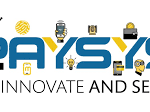We're back with our Summer quarterly roundup, featuring grant reports and updates from our Ambassadors, Grantees, and Partners shared over the past few months. Catch up on anything you might have missed!
In March, our ILF Ambassador community grew with the addition of a new cohort.

Andria Barrett - 2025 ILF Ambassador
Andria Barrett ・ Mar 26
Hello from Canada!
I'm proud to be included in the 2025 cohort. I'm a fierce advocate for inclusion and leverage over 15 years of experience helping organizations — from tech startups to nonprofits — create inclusive environments where people feel seen, heard, and valued.
My project, “Empowering Global ROSCA Users through Digital Financial Inclusion,” focuses on ROSCA users and aims to discover what steps need to be taken to support their transition to using digital financial tools that encourage global participation.
ROSCA is the acronym for Rotating Savings & Credit Associations. In Jamaica, it’s called a “pardna”. In Nigeria, it’s called a “susu”. In Guyana, it’s called a “box-hand” and in South Africa, it’s called a “stokvel” but in academia, it’s called a ROSCA.
Recently, Andria attended the 2025 Payments Canada Summit with several ILF colleagues, The summit highlights innovations, challenges and opportunities within the Canadian payment ecosystem. Andria also had the opportunity of participating in session titled Interoperable cross-border transfers: revolutionizing migrant remittances and featured with several ILF Colleagues.
You can watch Andria's vlog for her thoughts on the conference.

Bridging Financial Gaps in the South Through Community-Led Research
Sheena Allen ・ Apr 15
My name is Sheena Allen, and I'm a tech founder, international speaker, and advocate for financial inclusion. I grew up in Terry, Mississippi, a small town in a state that continues to rank among the highest for unbanked and underbanked populations in the United States. Financial exclusion wasn't just something I read or heard about from others. Instead, it was something that directly impacted much of my family and community members.
That experience has shaped the foundation of my work. Starting with an idea for a receipt app in 2016, I've spent nearly a decade building within the fintech space, creating products that sit at the intersection of technology and financial empowerment. Most notable was CapWay, a VC-backed digital banking platform focused on creating financial access and opportunities for financially underserved communities. Beyond just debit cards, CapWay also was a platform for financial education.
In April, Sheena initiated the first of several case studies about financial gaps in Miami, Florida. Her initial work involved interviewing participants about their experiences with financial exclusion in the Southern United States.
You can read more about Sheena’s work on this project here.


Hop Sauna, a social marketplace framework - introduction and roadmap
Gavin Chait for Hop Sauna ・ Apr 13
The purpose of the Interledger Foundation Ambassadorships is to support early-stage efforts at building bridges into the adoption and use of the open payments protocols. My Ambassadorship is all about enhancing accessibility to a technical protocol that most shouldn't need to know about to experience value from it.
Putting new payment systems into use is less about telling people, than putting it where they most need it as simply as possible.
My project, Hop Sauna, is an open-source template stack ready for custom development of community-moderated Open Payments-enabled web shops, including a base server and client, with documentation, to support rapidly creating new types of federated commercial social applications.
In his recent blogpost Gavin shares an update on the challenges challenge for any community recovering from centralisation and how difficult it is to change behaviours.

Surfacing harmful design patterns
Caroline Sinders ・ Apr 15
Hi! I’m Caroline Sinders (Caro for short); I’m a human rights researcher, and artist, originally from New Orleans, Louisiana and now based in the midwest, with long stints in London and Berlin in between. I’ve worked with organizations like the UN, the Information Commissioner’s Office (the UK’s data protection and privacy regulator), Amnesty International, the Mozilla Foundation, the Wikimedia Foundation, the Harvard Kennedy School and others. As an artist, I’ve worked with or had my work shown with the Tate Exchange in the Tate Modern, the Photographer's Gallery, MoMA PS1, the Contemporary Art Center of New Orleans, Honor Fraser Gallery, Ars Electronica, Drugo More, the European Media Art Platform, the European Commission's Sci Art residency, Eyebeam and others.
I’m so excited to be an Interledger Ambassador with the 2025 cohort, and to be exploring a topic really close to my heart: harmful design patterns. Harmful design patterns, sometimes called ‘dark patterns’, ‘manipulative design’, ‘deceptive design’, ‘anti-patterns’, or ‘online choice architecture’, are all the same phenomena which are design patterns that unintentionally or intentionally trick, confuse, or nudge users into making decisions they normally wouldn’t make. If you are reading this and thinking, “I don’t think I’ve come across a harmful design pattern before,” the sad truth is that you have :/
Have you ever unsubscribed from a newsletter and found you’re still subscribed? Have you ever booked a seat on a budget airline and realized you were ‘nudged’ or ‘directed’ to purchase add ons you didn’t really need, or have you ever clicked on a cookie banner?
You have encountered a harmful design pattern, but there are hundreds of different types.

Shifting Power in the Informal Economy: How to Research and Build Towards a Trans-local Community for Economic Justice
Xiaoji Song ・ Apr 14
Hi, strangers, old friends, and new friends!
It is Xiaoji (she/they) again, I am mostly based in Berlin, and now sending you greetings from my hometown Wuhan. I am here to explore and show some glimpses of how Interledger Ecosystem can support the needs and wants of the informal communities: As I am honored to be part of the 2025 Ambassador cohort, I want to introduce you to my project Shifting Power in the Informal Economy, and to share some updates and thoughts.
Informal economies are not marginal—they are central to how millions of people survive and build community. From street vendors and care workers to sex workers and undocumented migrants, informal workers sustain themselves and each other through everyday practices of resilience. Industrialized societies rely heavily on their labor, even as they continue to deny them recognition and legitimacy. Yet the people behind these economies are often pushed to the periphery—excluded from labor rights protections, shut out of financial systems, and rendered invisible in the very policymaking spaces that most deeply shape their lives.
Informal economy is not often discussed in the case of Europe. In a continent that boasts over 90% digital connectivity, the needs and struggles of informal workers in increasingly digitalized financial systems remain widely overlooked. This project begins from that contradiction and the belief that people navigating informal economies already hold essential knowledge and strategies for survival, care, and resistance…
Digital Financial Services Grantees

Wallet Guru Prototype Final Report
Fernando Almiñana ・ Jun 17
Fernando Almiñana shares in great detail the prototyping phase of his project Wallet Guru.
In today’s digital economy, consumers are no longer satisfied with rigid payment structures that don’t reflect how they actually use services. Whether it’s streaming content, topping up mobile data, or paying for utilities, people want flexibility, transparency, and immediacy. Yet in many parts of the world—especially across Latin America—financial infrastructure still relies on outdated systems like subscriptions, prepaid cards, or manual top-ups. These models introduce friction for users and inefficiencies for service providers.
Wallet Guru was created to bridge that gap. By integrating the Interledger Protocol (ILP) and Open Payments into a mobile-first platform, Wallet Guru enables real-time, usage-based payments in multiple currencies. Our mission is to build an inclusive financial ecosystem that aligns with how people live and consume today—giving them the ability to pay for what they use, as they use it.
This need is not only driven by user frustration—it is backed by data. A 2022 Deloitte study, based on interviews with 9,000 consumers, found that over half of respondents prefer pay-as-you-go models over subscriptions. The same study noted that consumers often forget about their subscriptions, spending an average of $219 monthly while only being aware of about 40% of that expenditure—highlighting the potential appeal of more transparent, usage-based models. Wallet Guru directly addresses this disconnect by replacing rigid billing cycles with real-time microtransactions that give users full control.
Demand isn’t limited to consumers alone. Our first integration partner, Sabby OTT, conducted its own market research in the content creation space and found strong support for Wallet Guru’s model among producers, distributors, and tech partners. What consistently generated excitement was Sabby’s “pay-as-you-watch” innovation—made possible by Wallet Guru’s real-time microtransaction infrastructure. Industry stakeholders called this model a game-changer for accessibility, especially in emerging markets and among casual viewers who prefer commitment-free engagement.
Our prototype phase focused on proving this concept in the real world. Over the past nine months, we built and deployed a complete MVP: a cross-platform mobile wallet, a web-based admin dashboard, and a gateway hub for service provider integrations. Our first implementation with Sabby OTT demonstrated Wallet Guru’s potential by allowing users to pay per minute of video watched—an experience that felt natural and intuitive to users. We delivered all planned milestones on time and without deviation, and performance testing across QA teams and early adopters validated the system’s scalability, accuracy, and usability. With a working foundation in place, our focus now shifts to enabling companies to adopt more flexible, consumer-centric business models through the Paystreme Network—models that reflect how people actually use and value digital services.
Meet our new Digital Financial Services Grantees


Project Introduction: Kanzu Microloans – Real-Time Credit Access for the Underserved
Maria Gorrettie Namuddu for Kanzu Finance ・ May 4
Hello Community,
We’re excited to introduce the Kanzu Microloans project by @Kanzu Finance Limited, developed with support from the Interledger Foundation through the Financial Services Grant. With this project, we are building an open, instant microloans infrastructure embedded within our flagship platform, Kanzu Banking, and powered by Rafiki and the Interledger Protocol (ILP).
This solution is designed to address the persistent challenges faced by community-based savings groups such as SACCOs, VSLAs, and investment clubs. While these groups play a vital role in grassroots financial inclusion, they continue to face long loan processing times, fragmented systems, and limited access to credit when it’s needed most.
Our aim is to provide a mobile-first, interoperable platform where SACCO members can apply for and receive microloans instantly via mobile wallets—with repayment terms tailored to their needs. By leveraging open payments technology, we are eliminating bottlenecks and enabling true financial agility for underserved communities.


Rafiki Remit: Advancing Seamless Remittances in Pakistan
Muneeb Asif for Paysys Labs ・ May 2
We are thrilled to kick off our journey with the Interledger Foundation and share the story behind "Rafiki Remit" — a pioneering initiative aimed at transforming cross-border remittances in Pakistan. At the heart of this project is Paysys Labs, a leading digital financial services company based in Pakistan.
Founded in 2016, Paysys Labs is a leading provider of digital financial services. Over the years, we've become a trusted partner in the fintech ecosystem by delivering secure, scalable, and innovative financial technology solutions.
Our work centers on creating seamless digital experiences that enhance customer access to financial products and services. We're committed to financial inclusion and digital transformation.
The BessPay Plugin is a new project that will integrate Interledger Open Payments into the Sharetribe marketplace platform, enabling micro, small, and medium enterprises (MSMEs) across the Global South to accept and send cross-border payments with lower costs, local currency support, and no-code setup.
This work is supported by a grant from the Interledger Foundation’s Digital Financial Services (DFS) Unlocked program and will be piloted through our Sharetribe-powered marketplace, SouthLink, which will connect MSME sellers in Africa, the Caribbean, and Southeast Asia with global buyers seeking authentic goods, services, and experiences.
Why Sharetribe?
Sharetribe powers thousands of marketplaces in over 70 countries, enabling entrepreneurs to launch online platforms for e-commerce, services, rentals, and more without writing code.
Today, these platforms rely heavily on traditional payment providers like PayPal, Stripe, and local gateways. But MSMEs face persistent barriers:
High transaction fees
Slow settlement times
Limited support for local currencies
Inaccessibility in many Global South markets
The BessPay Plugin addresses these issues by enabling Interledger Open Payments making it easier, cheaper, and faster for MSMEs to get paid, both locally and internationally.
Bowie State University FinTech $print Event
Andrew Mangle shares highlights...
Bowie State University wrapped up an exciting and inspiring FinTech $print event, supported by our ongoing collaboration with the Interledger community. During this event, student teams explored innovative ways to leverage the Interledger Protocol (ILP) to enhance digital financial inclusion and provide accessible financial solutions for underserved populations. Using the Design Thinking model, students focused on the underbanked and digital financial inclusion. Participants led with empathy, sought to define the challenges of financial inclusion, and produced three refined ideas.
We're thrilled to share the compelling student projects that emerged from the event. Your opinion matters to us, and we greatly appreciate your vote on the project you believe holds the most potential. The grand prize was being awarded to the team that got the most votes from the Interledger community.
To read grant reports and updates from our last quarterly roundup, you can find them here. Be sure to read our June Newsletter to learn more about Interledger and don't get to sign up to get our news directly to your inbox!






Top comments (0)